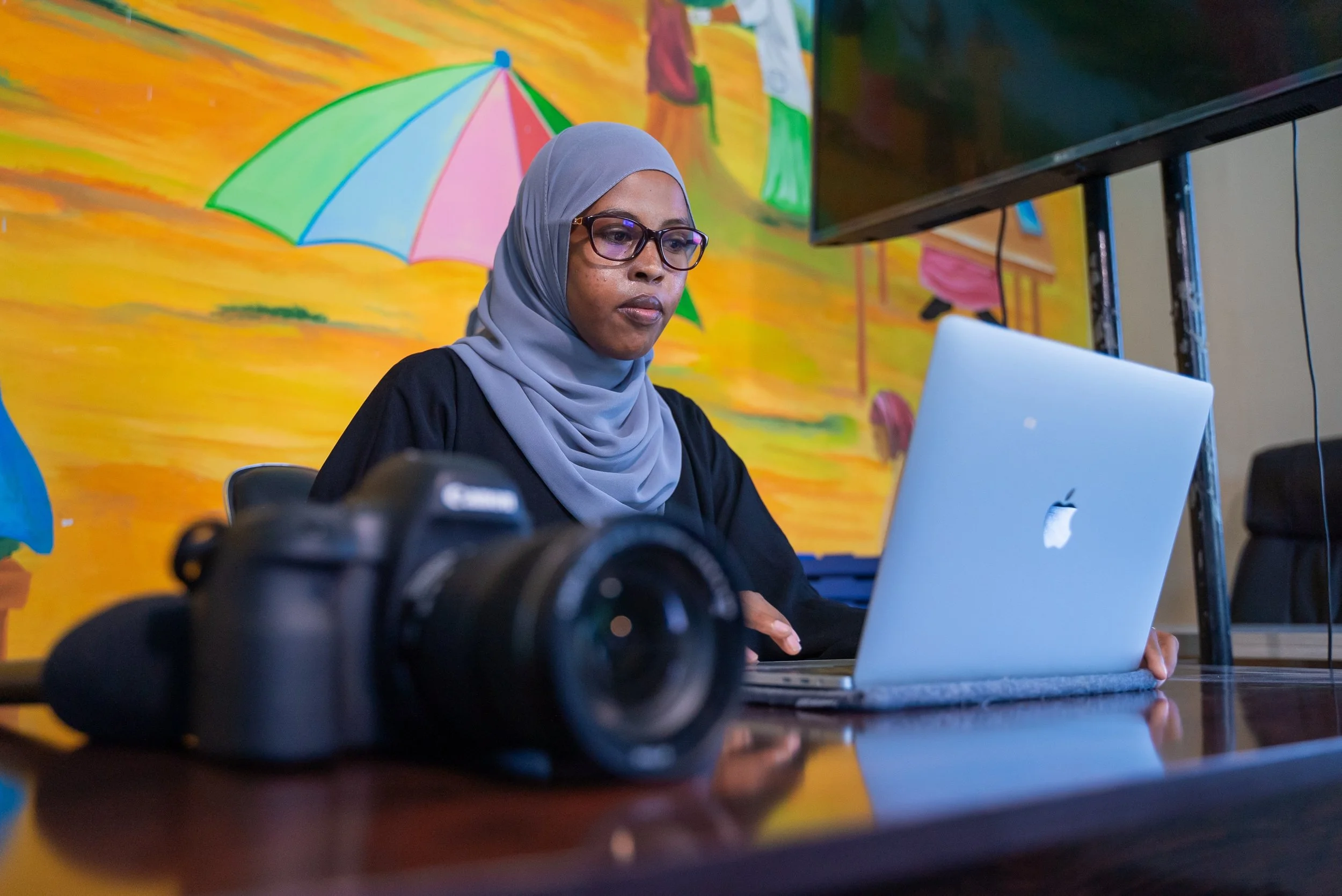What I learned from AFP, one of the world’s largest news organisations
Bilan’s Chief Editor, Hinda Abdi Mohamoud, tells us what she learned from her two-week internship with AFP in Nairobi and how this knowledge will help Bilan.
At Bilan, we set our sights high and aim to learn from the best. So, it was a golden opportunity for me to do a two-week internship at Agence France-Presse (AFP), one of the largest media organizations in the world.
In May, my colleague Kiin and I flew from Mogadishu to Nairobi, home to AFP’s East Africa Bureau. On the plane I sat next to a little boy called Ahmed. “It’s my first time on a plane!” he told me, eyes wide with excitement.
I knew how he felt. This wasn’t my first time flying – I travel a lot for Bilan – but it was my first time going to work with one of the world’s most famous media teams and I was excited, too. As we crossed from Somalia into Kenyan airspace, the in-flight meal gave Ahmed had another first. He looked at his yoghurt with suspicion, tried it and screwed up his face in disgust. We both laughed and I hoped my own new experience would turn out better!
Our driver, Patrick, was waiting for us and took us to the apartment where we would stay for the next two weeks.
The next morning, I woke up early to prepare a breakfast of French toast and tea while listening to the podcast "Women at Work." Cooking always calms my nerves, and the familiar sizzle of the pan was a comforting start to the day. Feeling excited but a bit nervous about meeting new people, I prepared for the office.
When we arrived at AFP, Tanya, the Bureau Chief for East Africa, warmly welcomed us and introduced us to the staff. The office buzzed with activity and we were greeted by a stunning view through the glass windows. Then we toured the departments and met journalists engrossed in their reporting.
I spent the afternoon writing notes and familiarizing myself with AFP’s work. The day flew by, filled with new experiences, and this set the pattern for the next two weeks of learning.
I gained insights into AFP's methods for producing hard news and feature stories, their rigorous fact-checking process, and their sophisticated remote editorial system. I learned how they verify events, examine photos for misleading information, and edit and approve video and photo content for clients. Mary, from the fact-checking desk, was particularly helpful. She taught us how to authenticate photos and explain the actual events behind misleading images.
Fact-checking is crucial in Somalia, where misinformation can have serious consequences. We’re really keen to do this at Bilan and I have now enrolled in AFP’s free online fact-checking course.
Additionally, I learned about commercial news production, audience growth, client loyalty, and monetization. We even attended press conferences with the Presidents of Kenya and Uganda, observing the news production processes firsthand.
During our photography training, Luis, the editor in charge of photography, shared his expertise on how AFP takes, edits, and approves photos. Managing 12 bureaus across Africa, Luis brought a wealth of knowledge. He is from Spain and speaks Spanish, a language I love learning. He even taught me a few words, like how to say "Hi” (Hola). Although I was doing the internship, I was also overseeing Bilan’s stories back home. One morning, while I was publishing social media posts for a Bilan story on National Youth Day in Somalia, Luis asked what I was doing. I explained, and he asked if he could try to read it. To my surprise, he read it correctly. I had never seen a foreign person read Somali so well!
AFP and Somali media outlets differ significantly in resources, reach and journalistic standards. AFP has a vast network of journalists producing news in six languages. In contrast, Somali media have a more localized reach and limited resources, affecting the scope and quality of their reporting. But the Bilan Media team can learn from AFP's fact-checking methods and remote working systems. We can also improve our videography and narrative skills, especially in reporting on climate change and issues affecting vulnerable populations in Somalia.
As well as picking up practical skills, my time at AFP gave me a renewed sense of purpose and commitment to improving journalism in Somalia. The skills and knowledge I gained at AFP are invaluable, and I am eager to share them with my colleagues at Bilan and other Somali women journalists. This internship not only broadened my professional horizons but also deepened my appreciation for the power of accurate and ethical journalism. I returned to Mogadishu with a strengthened resolve to implement these practices, confident that we can elevate our standards and contribute to a more informed and engaged community.
